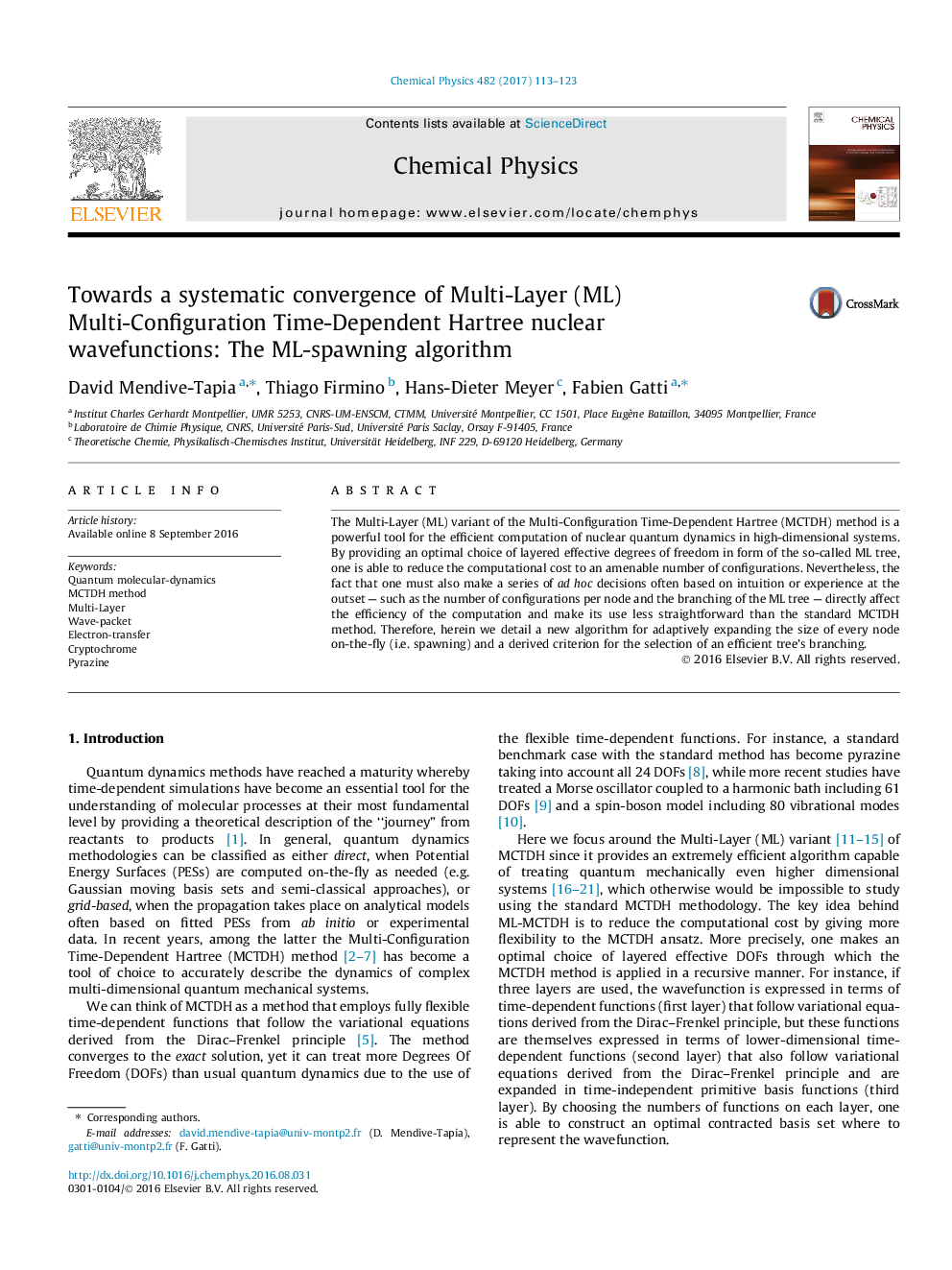| Article ID | Journal | Published Year | Pages | File Type |
|---|---|---|---|---|
| 5372784 | Chemical Physics | 2017 | 11 Pages |
The Multi-Layer (ML) variant of the Multi-Configuration Time-Dependent Hartree (MCTDH) method is a powerful tool for the efficient computation of nuclear quantum dynamics in high-dimensional systems. By providing an optimal choice of layered effective degrees of freedom in form of the so-called ML tree, one is able to reduce the computational cost to an amenable number of configurations. Nevertheless, the fact that one must also make a series of ad hoc decisions often based on intuition or experience at the outset - such as the number of configurations per node and the branching of the ML tree - directly affect the efficiency of the computation and make its use less straightforward than the standard MCTDH method. Therefore, herein we detail a new algorithm for adaptively expanding the size of every node on-the-fly (i.e. spawning) and a derived criterion for the selection of an efficient tree's branching.
Graphical abstractDownload high-res image (131KB)Download full-size image
